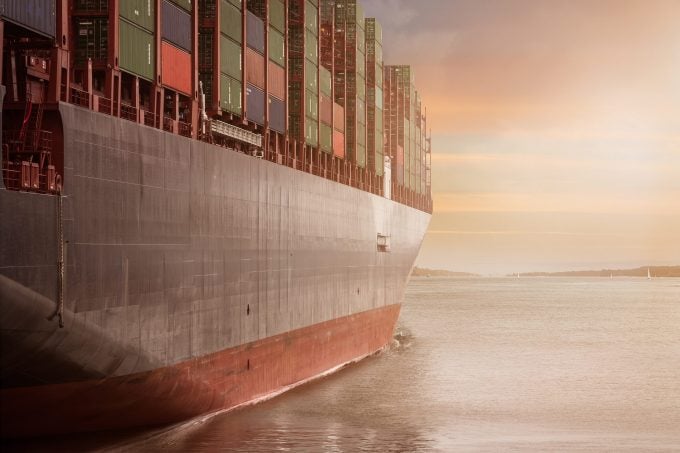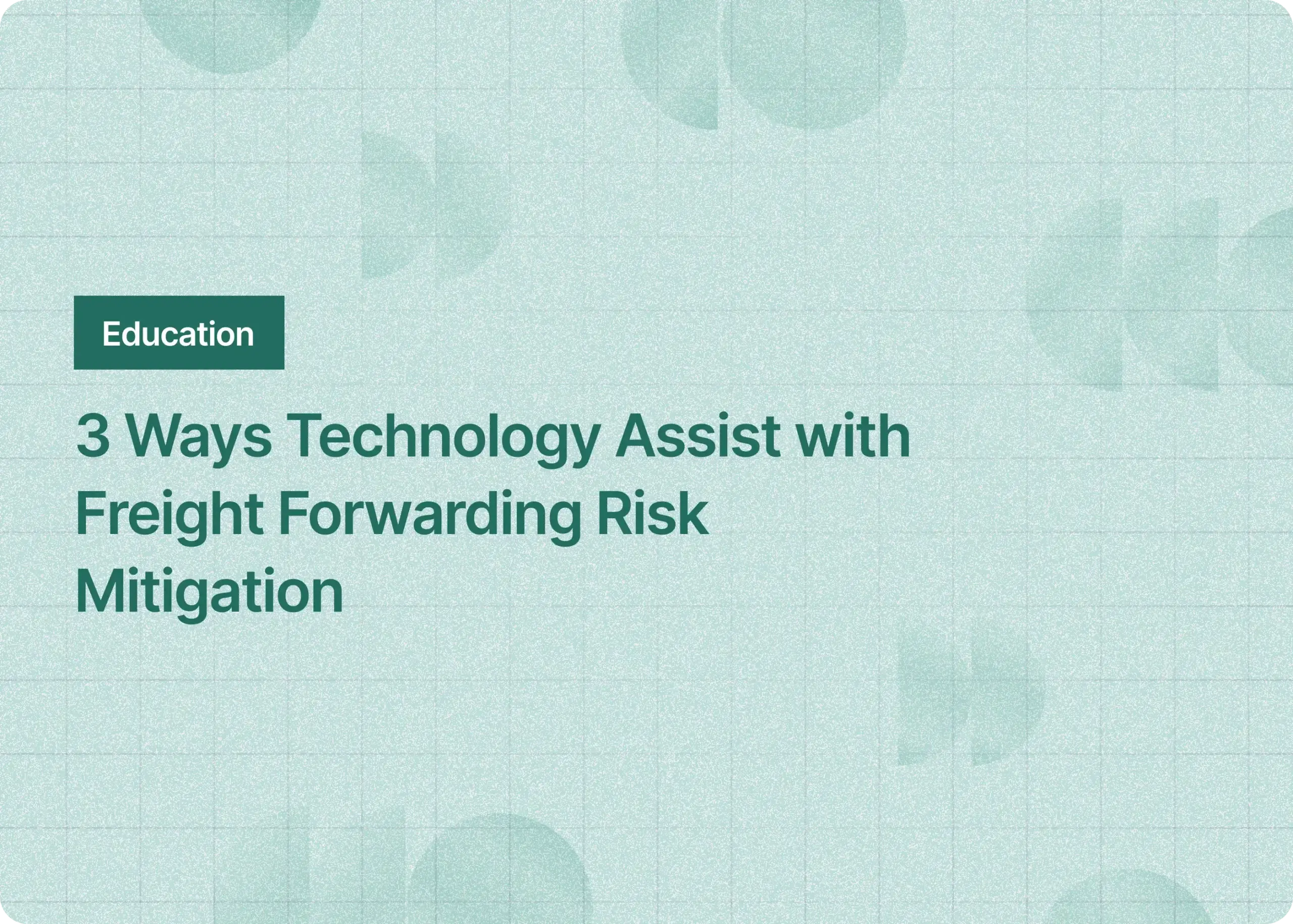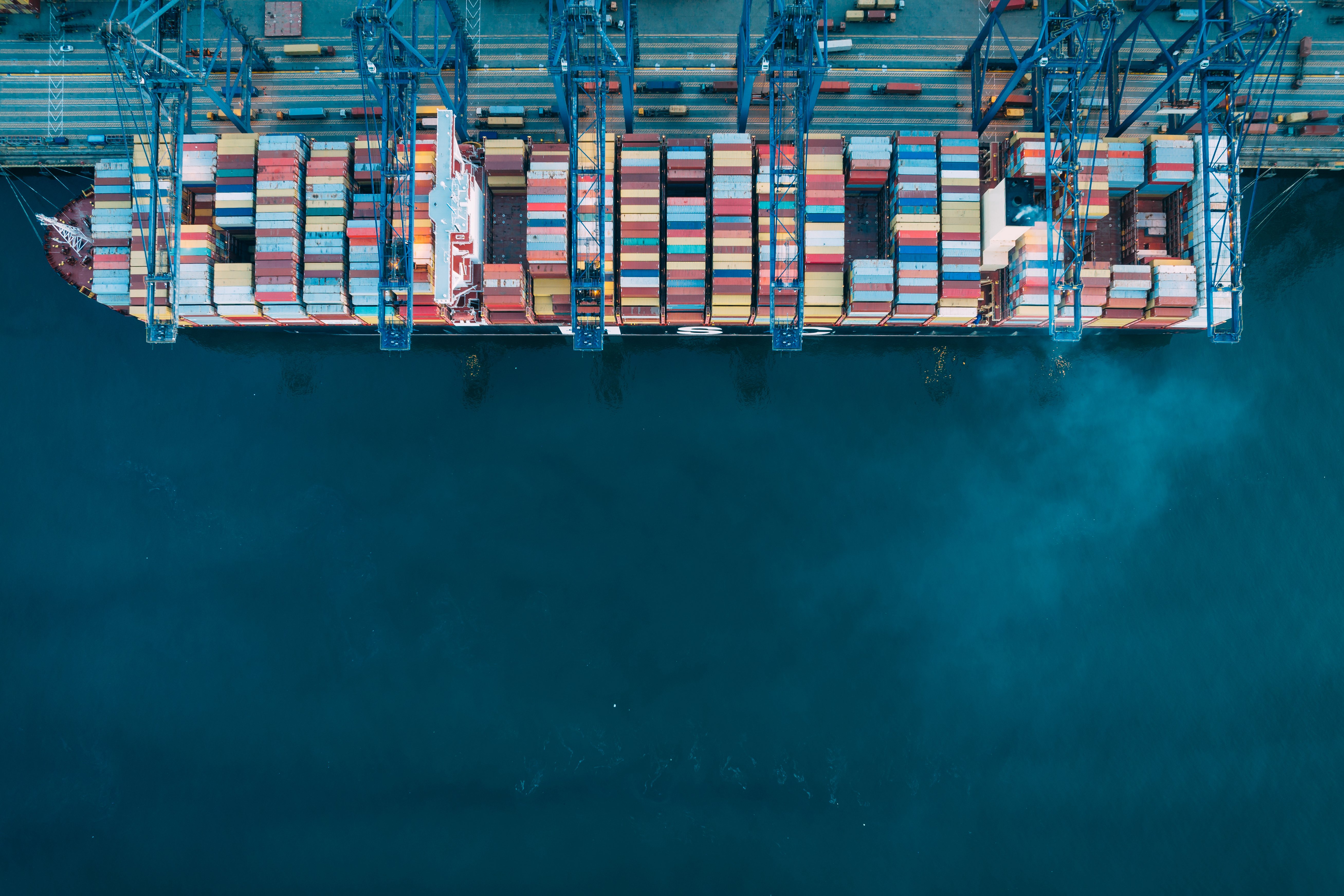
Freight forwarding is one of the most important industries in the business world since it provides a way for most companies to get their goods transported all over the world. No matter what kind of products a company is making, freight forwarders are an essential part of the world economy and without them, we would not be able to get items that can typically be found around the world. That’s why it’s important for everyone who deals with supply chain, logistics, freight forwarding, whether it’s working for one or alongside one, to have a decent understanding of this industry.
Surprisingly enough, even those who actually run or work in the freight forwarding industry don’t know all of the facts behind it. Either because they are new to this industry or simply do not care enough to delve deeper into the industry, which isn’t a smart idea, since being aware of the basic facts of an industry can help you in the long run.
That’s why for this article we’ll be going over ten facts everyone should know about the freight forwarding industry.
1. What is a freight forwarder?
Freight forwarders are the ones who are responsible for transporting goods from one destination to another. Freight forwarding companies will organize the entire process for the people who want to ship their goods to a certain destination. They’ll handle the storing process of the goods and ship them internationally. Freight forwarders are intermediaries between the shippers and the transportation services, and they’ll handle the negotiation with a variety of carriers to gain the most inexpensive, reliable, and quickest route to the destination.
2. Freight forwarders can provide a range of services.
Freight forwarders are capable of providing a wide range of services that helps their clients deal with the entire supply chain process on multiple levels. Let’s look over what you should expect from these services:
Customs clearance
All of the countries around the world have their own set of ports that makes your cargo through a customs clearance process. Furthermore, each country has its own set of rules, regulations, and laws, sometimes they can even differ from port to port within the same country, making someone who specializes in customs clearance a crucial part of exporting and importing your goods.
Custom clearance will typically involve the preparation and submission of documentation necessary to facilitate export or import into the country, representing a shipper during the custom examination, assessment, payment of work, and delivering of cargo from customs once clearance has been obtained along with documents.
Documentation for international exports and imports
The types of documents you can expect to see in customs clearance are:
Import Documentations:
Purchase order from a buyer, sales invoice of supply, bill of lading or airway bill, certificate of origin, billy of entry, packing list, and any other document that may be needed from the buyer or financial institution or the importing country regulation.
Exports Documentations:
Purchase order from a buyer, packing list, bill of lading or airway bill, certification of origin, sales invoice, shipping bill, and any other specified documentation that’s specified by the buyer or necessary by a financial institution or the importing country regulation.
Freight Insurance
Freight forwarders are responsible for any damage or loss of goods during transportation and in such cases, they can get sued for damaged goods. To protect themselves from this situation, a quality freight forwarding company will ask their clients to buy cargo insurance. Customers are persuaded to purchase insurance since it is their insurable interest to safeguard their cargo and it is also a standard and good practice to keep a favorable cover to protect goods on the move.
The freight forwarding company will make have to ensure that the consignment is insured on the client’s end and if not, they’ll request their clients to purchase cargo policy since a freight forwarder liability will be limited and at times the value of said limit for liability can be less than the value of the consignment.
To achieve the best advantage over their competition, freight forwarders can also purchase cargo insurance for their clients and provide coverage for a client’s consignment as an additional value. Large logistics companies are known for investing in cargo insurance to present an additional protective layer to their reputation. (Learn more here.)
Packaging
Freight forwarders will provide assistance to clients in packaging and preparing products for export. This task can hold a variety of complications, based on a product’s final destination. For example, packing for shipping inside of the United States can be simpler than packing a product for extended transit, where items will probably be shipped in massive cargo containers and unloaded frequently while en route. Goods can potentially be stored in environments of extremely high or low temperatures, and they can potentially undergo turbulent weather that can shake the ship.
Storing goods
This one’s quite simple, the freight forwarding company will provide assistance with the storage of goods into warehouses before they can be placed for transportation.
Inventory management
Inventory management is important for the success of a freight forwarding company’s supply chain. They need to be able to supervise the flow of goods from their clients to warehouses and from these facilities to the point of sale.
3. Product restrictions
When it comes to transporting goods internationally, freight forwarders will need to stick to strict regulations and are incapable of shipping certain products and substances to those areas. This is especially true for both air and ocean freight and the list of prohibited goods can vary depending on the final destination. Freight forwarders will usually be restricted from transporting:
- Alcohol
- Batteries
- Dangerous goods (including toxic products and flammable liquid)
- Drugs (both recreational and prescription)
- Perishable goods (depending on the delivery type)
- Sharp objects
Keep in mind that it’s best to ask the shipping company what can and can’t be transported to certain areas they’ll most likely know.
4. Shipping delays beyond freight forwarder’s control
While it can be extremely annoying to have your goods delayed during the shipping process, you need to keep in mind that it’s most likely not your freight forwarders fault for the hold up that’s occurred. Delays can happen for a variety of reasons, especially in ocean freight, such as horrible weather, breakdowns, delays from the port because of a variety of reasons, or having to unexpectedly change the route. The freight forwarding company will do everything they can to resolve this issue as soon as possible in order to get the goods to their final destination.
5. The main steps every freight forwarder takes
The process behind freight forwarding may seem complex for most people, but the entire process can be broken down into six simple steps:
Export haulage:
The first part involves transferring the products from their original source to the warehouse of the freight forwarders.
Export customs clearance:
One of the most important steps taken by freight forwarding companies is the shipping of goods internationally. This is possible once the goods have gained clearance to ship to the country of origin.
Origin handling:
Once the goods have gained clearance, they will be unloaded from the warehouse, inspected and validated their booking documentation.
Import customs clearance:
The authorities will carefully inspect the custom paperwork for the good to ensure everything is properly set.
Destination handling:
This process involves the handling of the goods once they’ve managed to reach their final destination and this will also include the transfer of said goods to the import warehouse.
Import haulage:
The last step that happens during this freight forwarding process is the transfer of the cargo from the import warehouse to its final destination.
6. Specialist freight forwarders
Most freight forwarding companies will be capable of handling a variety of items for transportation. Although certain freight forwarding companies will specialize in certain types of cargo. Depending on what you’re trying to ship across the sea, it would be beneficial to search for a freight forwarder that specializes in transporting your kind of cargo. Not only will they have the experience of handling your kind of cargo, but they will also have a team of specialists on board who are accustomed to handling cargo that’s similar to yours.
Searching for the appropriate company suited for your type of cargo can take a bit of research. The company you do decide on will ensure that your goods manage to reach their final destination in the best possible time and economical manner.
7. A well-built network is essential
When searching for a freight forwarder to transport your goods overseas, you should take the time to make sure the company you’ve picked is well-established and has a well-built network of contacts. By relying on a freight forwarder with enough experience under its belt, you’ll be capable of receiving the best quotes for the shipment of your goods. Along with making sure they manage to reach their final destination in a timely manner.
Experienced freight forwarders will have already dealt with numerous problems over the years they’ve worked in this industry, so they should be capable of handling any situation with your shipment quickly, efficiently and professionally, should something happen.
8. Maintain a positive relationship with freight forwarders
The freight forwarding company you sign up with will be the ones responsible for making sure that your important cargo manages to reach its final destination safely. So it’s certainly a good idea to maintain a positive relationship with them. When deciding on a freight forwarding company, you’ll want to ensure that you can completely trust and rely on them to do good by you. Make sure that the company you choose is known for having excellent customer service to ensure that you are receiving updates periodically on the status of your foods throughout the shipping process, allowing you to have peace of mind.
9. Makes the transport of goods hassle-free
One of the best parts for most people when it comes to relying on freight forwarders is how they are capable of taking off the stress and hassle that comes with importing and exporting cargo. The people in this industry are fully capable of handling everything related to the supply chain and can offer assistance on all levels. They will help with the packaging and warehousing process along with helping their customers navigate through each procedure. Freight forwarders will make sure the pressure gets taken off your shoulders and that everything is done as smoothly as possible with barely any complications on your end.
10. Keeping your papers up-to-date
While freight forwarders are capable of handling most of the aspects involving shipping goods internationally, there are still things you are responsible for making sure they can transport your goods overseas. The responsibility of making sure that you have finalized all of the necessary paperwork for transporting your goods before handing them over to the freight forwarder. This is an important step in the process since it will reduce the risk of your cargo being held up by customs or the bank not releasing your funds. If you are unsure of what paperwork needs to be prepared before the shipping can occur, ask your freight forwarding company, they’ll most likely be able to help you out with this important step.
Conclusion
Freight forwarding is a business that’s become crucial for moving goods all over the world. 90% of our goods are conducted with the help of freight forwarding companies, which just shows how important they are for most businesses. That’s why it’s important for you to keep these facts in mind when dealing with freight forwarding. Hopefully, this article has given you an insight into what to expect from the freight forwarding industry.


